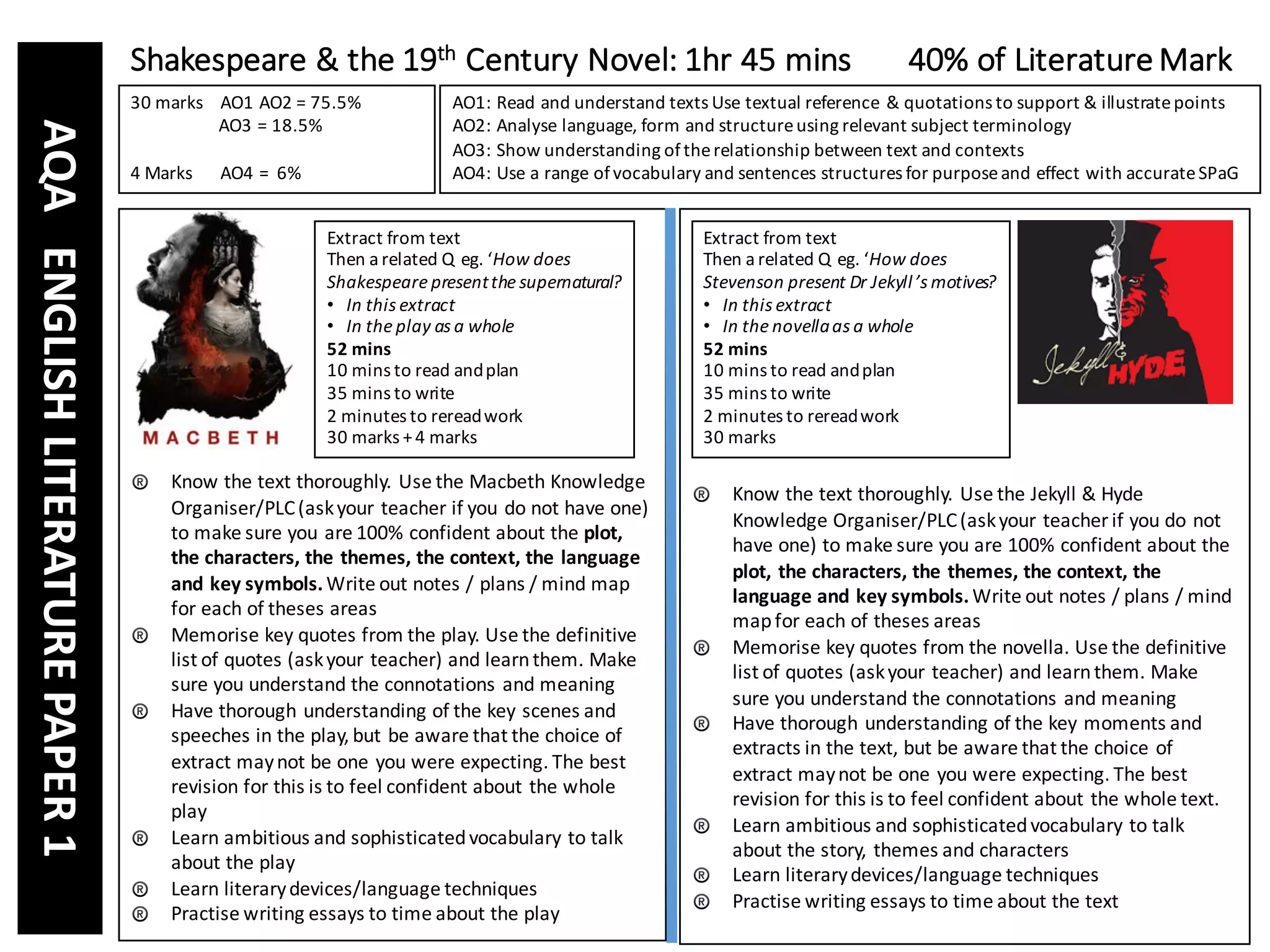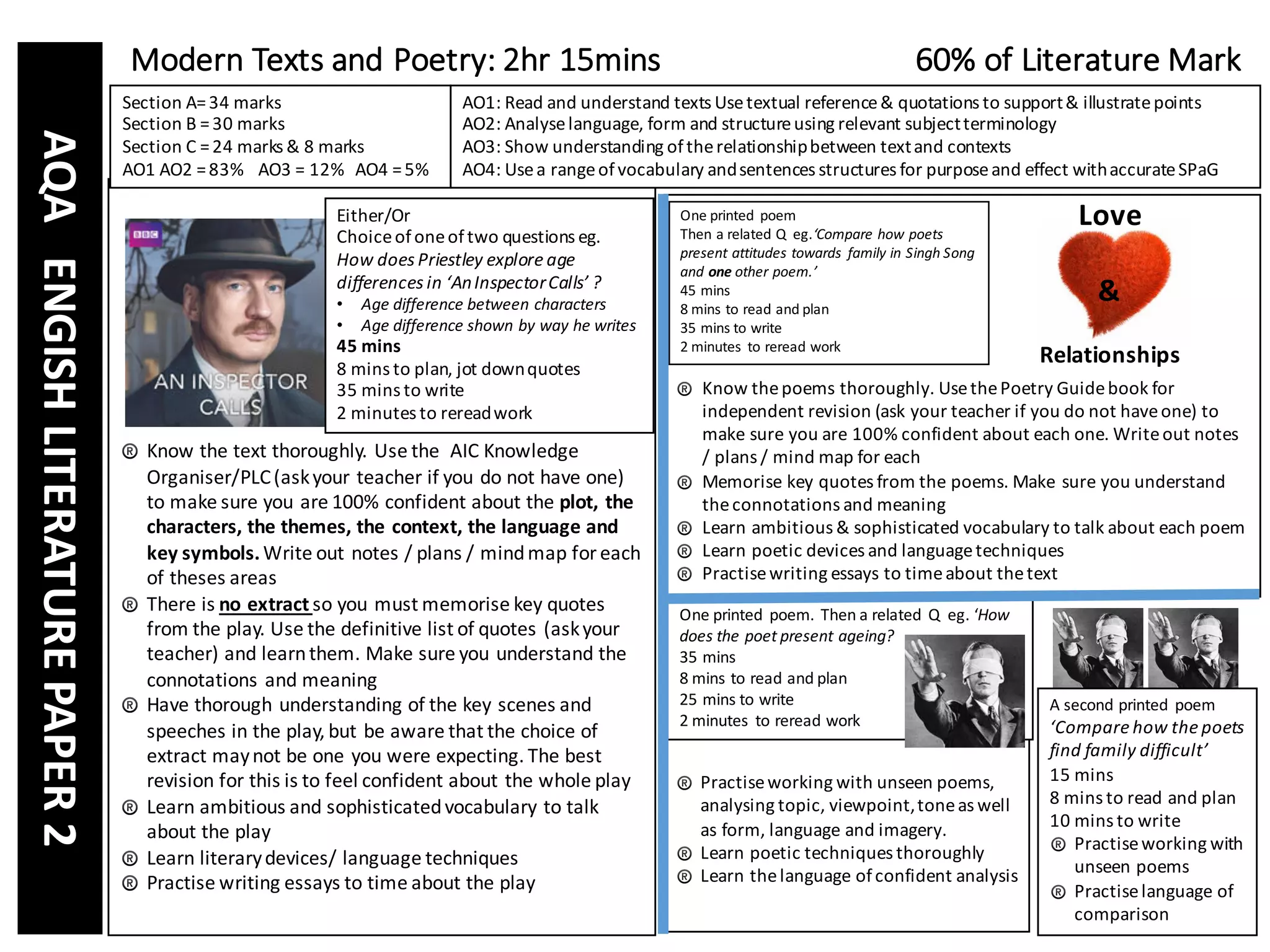This document provides guidance to students on how to prepare for and approach different sections of the AQA English Language exam. It outlines the structure of Section A, including the time allotted and assessment objectives for each question. It then provides detailed guidance on how to respond to different question types focusing on language, structure, and evaluation. It emphasizes practicing language techniques, analyzing word choice, and using textual evidence to support arguments. Finally, it addresses the creative/descriptive writing task in Section B, with tips on crafting an engaging narrative or description through planning, balancing description and action, using a strong opening, and maintaining technical accuracy.





